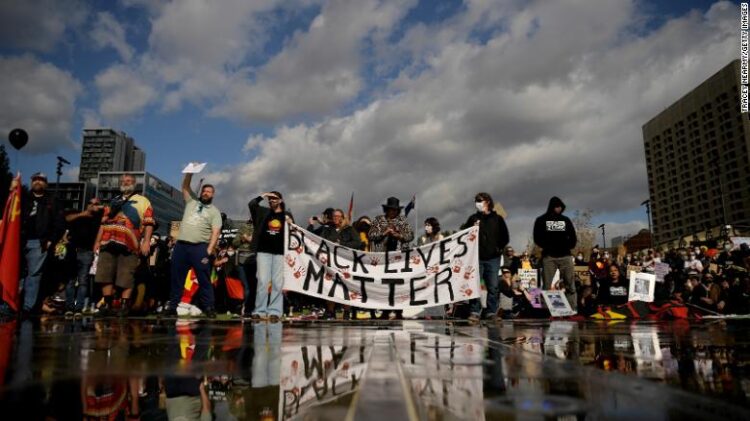By Martin Cole-
Australian cities and towns have been gripped with protests in support of Black Lives Matter, despite pleas from the prime minister and state leaders for people to stay home.
After a court banned the protests, following an application from a policeman, the New Wales Court Of Appeal overturned the ruling late on Friday, permitting the protests to go ahead.
Protesters in Sydney were prepared to violate a supreme court order giving police the right to fine them for breaking social distancing laws, but hailed the subsequent court ruling by the court of appeal overturning the decision.
The last minute appeal provided the ruling the crowd wanted, just 12 minutes before the rally was scheduled to begin.
Over 15,000 people attended the Sydney march which was initially peaceful before turning ugly when police officers used pepper spray on protesters who had flowed into Central station after the rally finished.
In a number a number of cities including Melbourne, Brisbane, Adelaide, and smaller cities and towns across the country mask-clad protesters gathered, drawing attention to racial profiling, police brutality and the more than 400 Indigenous people who have died in police custody since a royal commission into the problem was held in 1991.
Protesters fell silent to mourn Indigenous deaths in custody and stopped to take a knee as they marched.
Organisers led chants of “I can’t breathe” and “Black lives matter”. Another chant involved those at the rally hitting their chests to connote the sound of a heartbeat.
In Sydney, Leetona Dungay, the mother of David Dungay, who uttered the precise ”I can’t breath”, spoke of the anguish of her own loss, as she addressed the crowd.
The “I can’t breathe” chant echoed by the united protesters resonnated strongly with her. She said:
“They held my son down for 10 minutes,” Leetona Dungay said told the crowd. Dungay was schizophrenic and diabetic, died in Long Bay Prison Hospital after he was overpowered and restrained by at least four prison officers
In a separate incident, Warren Day, whose mother, Tanya, died in police custody, lamented the fact there had been no convictions despite the hundreds of Indigenous deaths in police custody in the past three decades.
A coroner investigating the death in custody of the Aboriginal woman referred the case to the department of public prosecutions in April to determine whether criminal negligence has occurred.
Coroner Caitlin English said she believed an indictable offence may have been committed.
Coroner English also recommended that a falls risk assessment be placed in the Victoria police manual’s guidelines for holding people in custody, that police training be updated with reference to the royal commission into Aboriginal deaths in custody, and that both the Victoria police and V/Line transport training manuals be subject to an independent human rights review.




